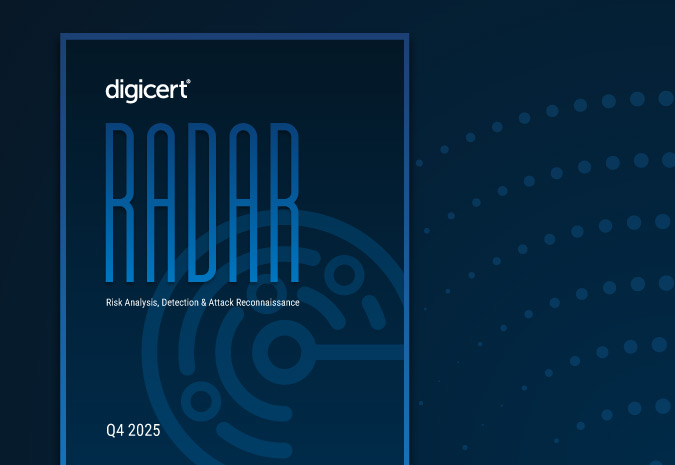-
Platform
Back
DigiCert ONE Integrations
-
Solutions
Back
-
Buy
Back
Signing Certificates
- Company
-
Resources
Back
-
Support
Back
Resources
Contact Support- Americas
- 1.866.893.6565 (Toll-Free U.S. and Canada)
- 1.801.770.1701 (Sales)
- 1.801.701.9601 (Spanish)
- 1.800.579.2848 (Enterprise only)
- 1.801.769.0749 (Enterprise only)
- Europe, Middle East Africa
- +44.203.788.7741
- Asia Pacific, Japan
- 61.3.9674.5500
- Americas
-
Language
- Contact us

Verified Mark Certificates (VMCs) are enjoying continued growth and exposure in the marketplace. Starting with adoption last year by Gmail, the world’s largest email provider, VMCs will be shown by Apple in iOS16 and MacOS Ventura, available this fall.
VMCs allow your company’s trademarked logo to be shown next to the “from” name in Gmail and Fastmail emails. Now with Apple’s planned mobile and desktop releases, that same logo will show up in the Apple email client as well as in emails sent to iCloud addresses.
This represents a huge step forward in the ecosystem and an affirmation that VMCs can help promote a more secure environment by encouraging the adoption of DMARC. DMARC is a key security tool to help prevent email spoofing and phishing emails and is required for VMC logos to show in email inboxes. VMCs rely on the BIMI specification (Brand Indicators for Message Identification). See https://bimigroup.org for more information.
DigiCert was one of the authors of the original VMC specification and participated in the early pilots with a select group of customers. Since the public release of VMCs in July 2021, we have seen great adoption all over the world by companies that want to ensure their customers see the corporate logo in every email. Emails can also be configured by use of the BIMI header to only show the logo to selected recipients.
The adoption of VMCs by Gmail, Fastmail and now Apple is a step in the right direction, to help marketers promote their brands while at the same time helping to secure the email ecosystem via DMARC. We understand that other large email providers are considering adopting VMCs as well and we look forward to future announcements.
For customers interested in VMCs, you can find more information at www.digicert.com/vmc.
Featured Stories

TLS Certificate Lifetimes Will Officially Reduce to 47 Days
Secure your Email. Boost your Brand.
Learn more about DigiCert Mark Certificates today,
-
Company
-
My Account
-
Resources
-
Sites
-
© 2026 DigiCert, Inc. All rights reserved.
Legal Repository Audits & Certifications Terms of Use Privacy Center Accessibility Cookie Settings



